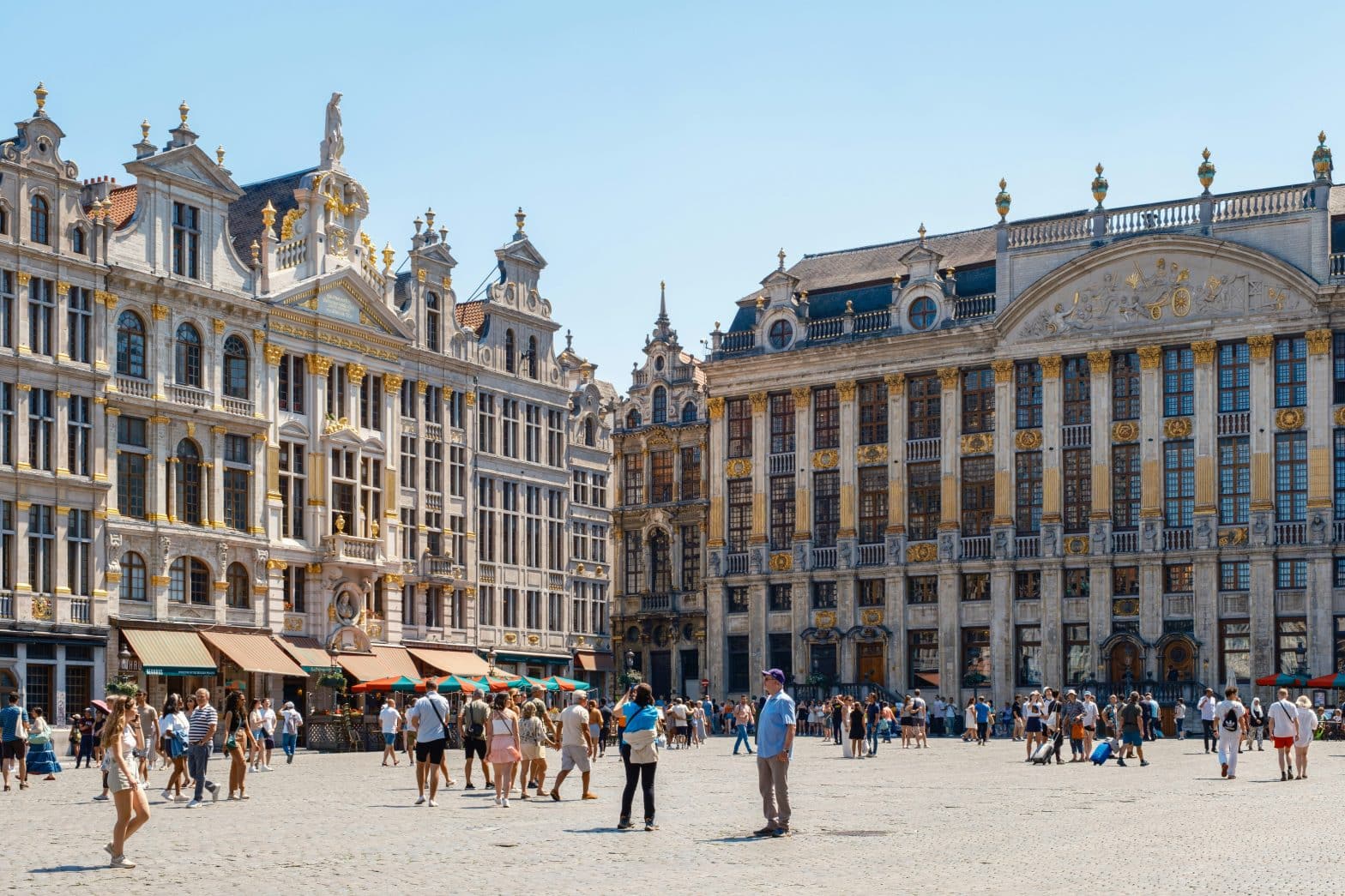No matter how much you love French fries, that’s not why you would move to Belgium. But to enjoy proximity to many European countries, a dynamic job market and one of the best healthcare systems in the world, now that’s a different story!
Moving to Belgium is far from being an exotic adventure, especially if you are British or from another European country. However, this move requires preparation, and some advice can greatly facilitate the process.
What are the mandatory administrative formalities? Where should you live? How much should you budget?
Foyer Global Health has decided to answer all your questions to help you successfully relocate to Belgium.
Advantages and disadvantages of living in Belgium
Advantages
- 5th best healthcare system in Europe
- One of the best education systems in the world
- A multicultural environment of choice
- Brussels is less than 1 hour 40 minutes by TGV from Paris, 2 hours 15 minutes from Amsterdam and 1 hour 50 minutes from Cologne
- A rich and varied cuisine (waffles, Flemish stew, beer, chocolate… and chips!)
- A stable job market, as indicated by an unemployment rate below the European average
Disadvantages
- Taxes are among the highest in Europe
- The language barrier if you don’t speak one of the country’s three official languages (French, Dutch and German)
- In Brussels, the rental market is saturated, which also drives up housing prices
Moving to Belgium: formalities and administrative procedures
For EU citizens
For Brits, Swiss and all other EU nationals, no visa is required to stay in Belgium. There are only two formalities to complete:
- Hold a valid passport or identity card, bearing in mind that the country does not recognise extended identity cards (i.e. those with automatically extended validity);
- Register with the local authorities in your place of residence within 10 days of your arrival.
For citizens of non-EU countries
Non-EU citizens must apply for a D visa for stays of more than 90 days.
This renewable residence permit can be applied for at the Belgian embassy or consulate in your country of residence.
Where to live in Belgium?
In Belgium, you should choose accommodation based on:
- Your place of work, i.e. nearby;
- A region where you speak the language.
Reminder:
- In the north of the country is Flanders, where Dutch is the predominant language;
- In the south is Wallonia, where French is the main language;
- In the east, some regions speak German;
- Brussels is a bilingual city par excellence (French and Dutch)..
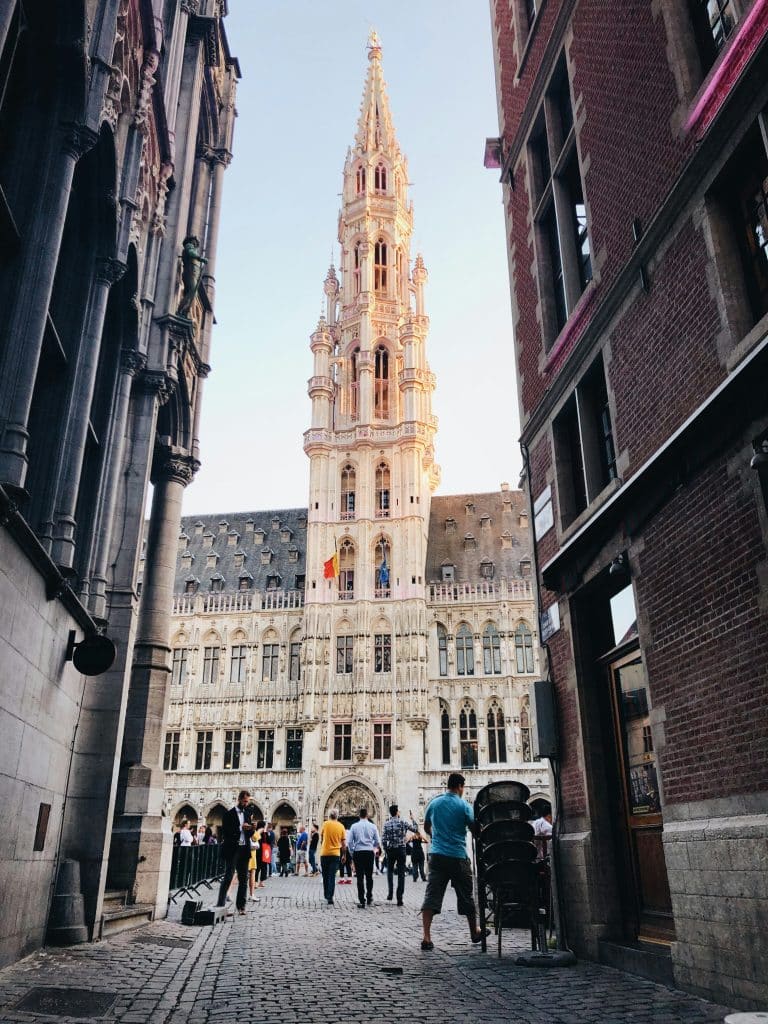
To find accommodation, you can use estate agents or search online yourself on specialised websites such as:
- Zimmo
- Rentola.be
- Immoweb
- Brukot and Bed&Brussels for accommodation in Brussels.
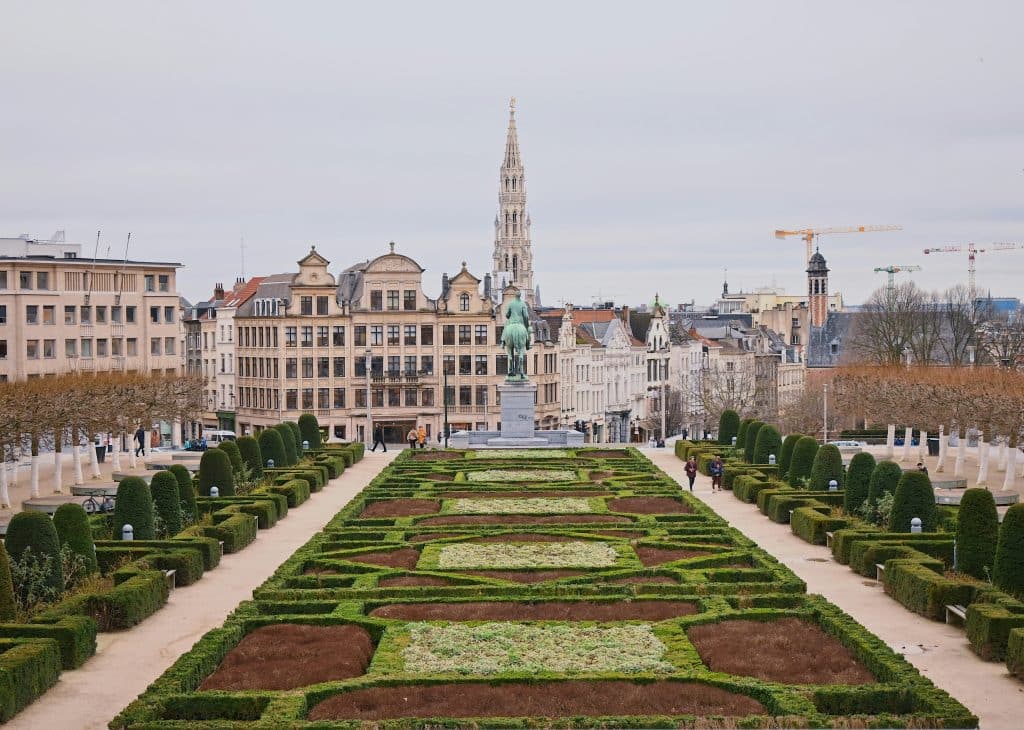
Brussels
Brussels is a cosmopolitan capital offering a pleasant living environment, more than 8,000 hectares of green space and a dynamic job market. Not to mention that it is home to the headquarters of the European institutions.
The only downside for expats is that they have to work harder to find accommodation, as supply struggles to keep up with demand, especially in the city centre and surrounding areas.
Unsurprisingly, therefore, accommodation in Brussels is among the most expensive in the country.
Liège
Nicknamed ‘the Ardent City’, Liège is the largest French-speaking city in Wallonia. It attracts foreigners with its cultural richness, which delights young and old alike. Liège is also a leading university city.
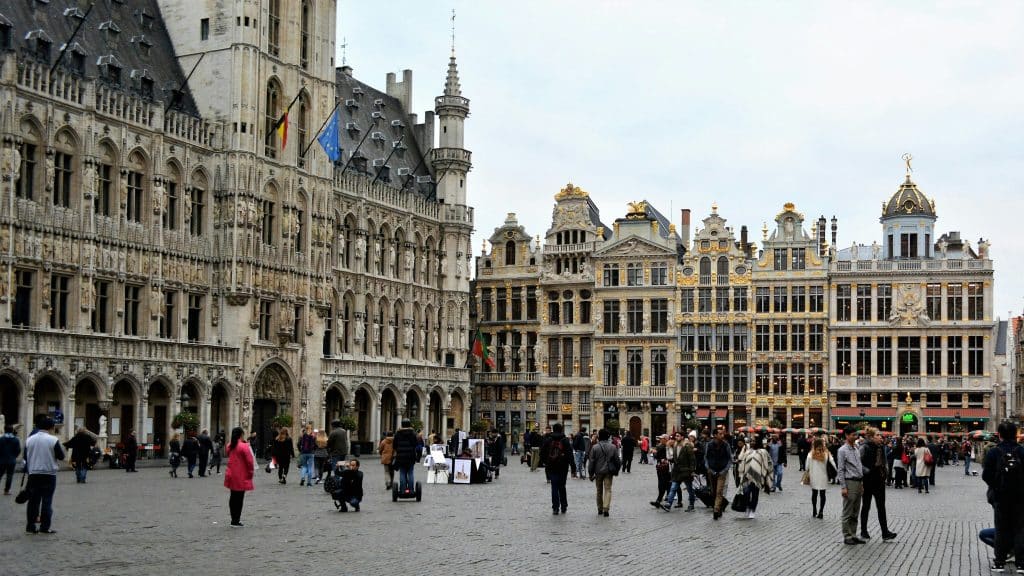
Antwerp
Antwerp, a port city in the Flemish region, is the second most populous city in the country.
Historically known for its bourgeois and merchant life, it is famous for its diamond trade and historic districts. There are many job opportunities and a lively cultural life.
Ghent
Still underrated compared to other cities in the country, Ghent is nevertheless a prime destination for settling down in Belgium. This dynamic city has a large working and student population. Young people and adults alike enjoy an excellent quality of life, surrounded by remarkable architectural heritage.
Ghent also boasts the largest pedestrian zone in Belgium and is located at the confluence of the Scheldt and Lys rivers. A beautiful city on the water!
Note: Ghent is Dutch-speaking; Dutch is the main language spoken there.
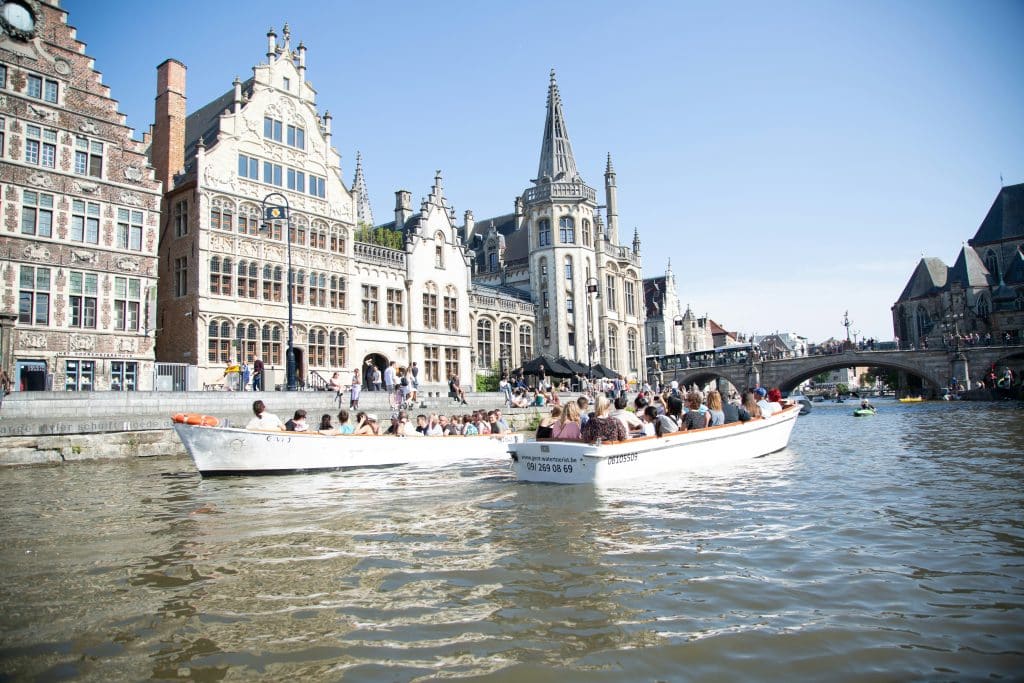
Tournai
The main feature of Tournai is that it is one of the oldest cities in the region. Authentic and peaceful, it charms visitors with its historic sites, architectural facades and Romanesque artistic heritage.
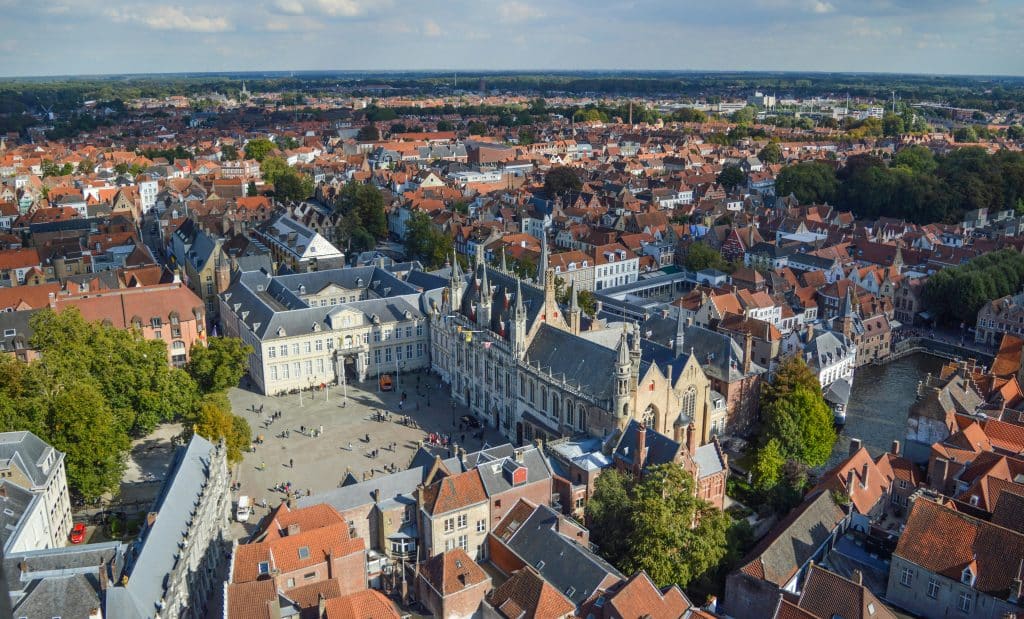
Bruges
A Dutch-speaking city listed as a UNESCO World Heritage Site and Belgium’s main tourist destination, Bruges charms expats who have already visited it on holiday. Its canals, which have earned it the nickname ‘Little Venice’, create a unique atmosphere.
Where should you avoid settling in Belgium?
There are no areas that are formally discouraged, but as is the case in all countries, some cities may be less attractive to expats. This is particularly true of a few former industrial towns, where the living environment is still marked by the presence of brownfield sites and ageing infrastructure. These include Charleroi, La Louvière and Seraing.
Daily life in Belgium
Opening a bank account
Opening a bank account in Belgium is very simple for foreigners.
In general, after choosing between a traditional or online bank, expats only need to provide the following two documents to the institution:
- A valid identity document
- Proof of address
Working in Belgium: procedures and salary
Citizens of the European Union and Switzerland do not need a work permit to work in Belgium. They can sign an employment contract and start work immediately.

For citizens of other countries, it is up to the Belgian employer to apply for a permit via the official website Working in Belgium.
According to the Belgian statistics office (Statbel), the median salary is €3,728 gross per month. It should be noted that a full-time working week in Belgium is 38 hours, compared to 35 hours in France.
While Belgian salaries are among the highest in Europe, the country also has one of the highest tax rates (between 25% and 50%). This is mainly due to the financing of social security, which accounts for almost half of tax revenue.
Getting around
Many residents travel by car: Belgian motorways are entirely free and distances are reasonable.
Belgium also has an extensive public transport network. Buses cover the whole country and are operated by De Lijn in Flanders and TEC in Wallonia.
As for trains, Intercity trains connect major cities, while Interrégion trains serve medium-sized towns.
Brussels is served by a metro system. To simplify your journeys, you can download the STIB app, which allows you to plan your routes and buy tickets.

The cost of living for expats
The cost of living in Belgium can be relatively low or high, depending on where you live. On average, a single person spends around £1,685 per month, including accommodation, while a family of four should expect to pay around £4,450.
Rents in Brussels are among the highest in the country. To give you an idea, expect to pay around £850 for a one-bedroom studio, compared to £500 in Liège. On the other hand, salaries are also higher, with an average of £3,970 in the private sector, compared to £3,247 in the province of Liège.
Family life

Moving abroad is sometimes a family project, and Belgium has everything you need for parents and children alike!
The education system is one of the best in the world, ranked 9th out of 81 by the OECD. In Wallonia, teaching is in French; in Flanders, it is in Dutch; and in Brussels, both are possible depending on the school.
Belgium offers several English-speaking international schools that cater to expatriate families and local residents seeking an international education. These schools are primarily located in major cities such as Brussels, Antwerp, Ghent, and Waterloo., e.g. the British School of Brussels (BSB) – Tervuren.
When it comes to leisure activities, there is no shortage of cultural attractions (museums, historical sites, events, etc.), as well as green spaces.
Health: insurance and quality of care
The Belgian healthcare system is based on high-quality infrastructure, both in the public and private sectors. (Yes, there’s a good reason why taxes go towards social security!).
All expatriates, whether employed or self-employed, must join a Belgian mutual insurance company in order to benefit from social security. Those who are not in employment must take out health insurance in their country of origin.
Even though the healthcare system is well developed and comprehensive, you should expect to pay some of the costs yourself. On average, consultation fees are reimbursed at 75%, and often less in the event of hospitalisation.
Take out private international health insurance
Many expats opt for private international health insurance. It offers better health coverage and is valid in Belgium, in your country of origin and anywhere else in the world.
This insurance covers emergency repatriation as well as care that is often excluded from mutual insurance schemes, such as dental and eye care.
The country’s must-sees
- Enjoy the many (really many) outdoor activities: Antwerp Zoo, the 5,000 animals at Pairi Daiza, the Centennial Park;
- Discover the country’s 260 museums, including the famous Groeninge Museum in Bruges and the Royal Museums of Fine Arts of Belgium;
- Explore the Castle of the Counts of Flanders;
- Tour the continent by visiting Mini-Europe, where European wonders are reproduced in miniature;
- Spend a weekend with your feet in the sand in Knokke-Heist, with its 10 km of beach.
